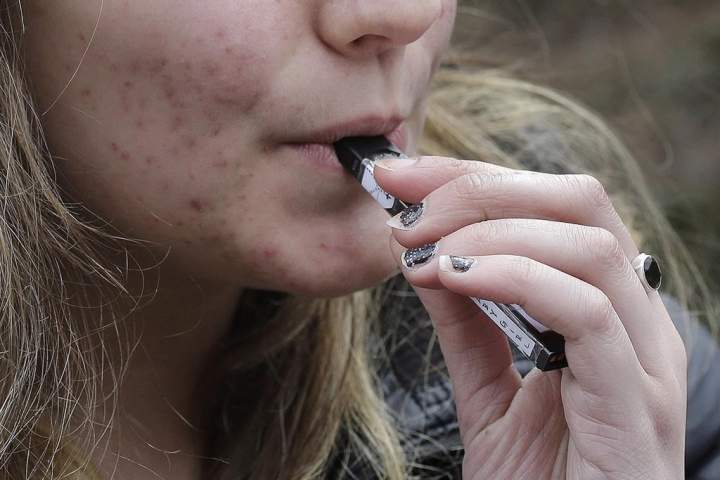Health
B.C. Proposes New Law Targeting Deceptive Vaping Practices

The government of British Columbia (B.C.) has introduced a significant legislative proposal aimed at holding vaping product manufacturers and wholesalers accountable for deceptive practices. The proposed Vaping Product Damages and Health Care Costs Recovery Act seeks to empower the provincial government to take legal action against companies that mislead consumers regarding the health implications of their products.
B.C. Attorney General Niki Sharma highlighted the urgency of addressing these practices, stating, “Deceptive practices by vaping manufacturers are driving harmful behaviours, especially among youth, and placing growing pressure on our health-care and education systems.” The proposed law reflects a commitment to protect public health, ensuring that corporations prioritize consumer safety over profit. Sharma further asserted, “With this legislation, B.C. is once again leading the way in protecting people and holding corporations to account, just as we did with tobacco and opioid manufacturers.”
Legislative Context and Recent Settlements
Earlier in March 2023, B.C. was part of a landmark $32.5 billion settlement involving Canada’s provinces and territories and three major tobacco companies: JTI-Macdonald Corp., Rothmans, Benson & Hedges, and Imperial Tobacco Canada Ltd.. This settlement was reached after more than five years of negotiations, following a pan-Canadian lawsuit addressing health damages caused by tobacco use.
In a separate legal effort, the B.C. Supreme Court has certified two class-action lawsuits, with the provincial government as the lead plaintiff, against opioid manufacturers and distributors, as well as the consultancy firm McKinsey. These lawsuits focus on the role these entities played in exacerbating the opioid crisis in Canada. The proposed vaping legislation is part of a broader initiative to ensure corporate accountability in matters affecting public health.
Protecting Youth and Public Health
The B.C. government emphasizes the need to safeguard students and the wider community from the dangers associated with vaping. Lisa Beare, Minister of Education and Child Care, remarked, “Students need to be supported and safe, both in and out of school, so they can make informed decisions about their health.” She added, “We all want to keep vapes and dangerous substances out of the hands of kids, which is why today’s announcement is so important.”
In addition to the vaping legislation, the government is exploring similar measures to address the harm caused by per- and polyfluoroalkyl substances (PFAs), commonly known as “forever chemicals.” These substances are found in various products, including firefighting foams, food packaging, and textiles, raising additional concerns about public health and environmental safety.
The introduction of this legislation marks a significant step in B.C.’s ongoing efforts to prioritize health over corporate interests, aiming to create a safer environment for all residents, particularly vulnerable youth. The B.C. government is determined to ensure that companies operating in the province uphold ethical practices that protect the health and well-being of its citizens.
-

 Science3 months ago
Science3 months agoToyoake City Proposes Daily Two-Hour Smartphone Use Limit
-

 Top Stories3 months ago
Top Stories3 months agoPedestrian Fatally Injured in Esquimalt Collision on August 14
-

 Health3 months ago
Health3 months agoB.C. Review Reveals Urgent Need for Rare-Disease Drug Reforms
-

 Technology3 months ago
Technology3 months agoDark Adventure Game “Bye Sweet Carole” Set for October Release
-

 World3 months ago
World3 months agoJimmy Lai’s Defense Challenges Charges Under National Security Law
-

 Lifestyle3 months ago
Lifestyle3 months agoVictoria’s Pop-Up Shop Shines Light on B.C.’s Wolf Cull
-

 Technology3 months ago
Technology3 months agoKonami Revives Iconic Metal Gear Solid Delta Ahead of Release
-

 Technology3 months ago
Technology3 months agoApple Expands Self-Service Repair Program to Canada
-

 Technology3 months ago
Technology3 months agoSnapmaker U1 Color 3D Printer Redefines Speed and Sustainability
-

 Technology3 months ago
Technology3 months agoAION Folding Knife: Redefining EDC Design with Premium Materials
-

 Technology3 months ago
Technology3 months agoSolve Today’s Wordle Challenge: Hints and Answer for August 19
-

 Business3 months ago
Business3 months agoGordon Murray Automotive Unveils S1 LM and Le Mans GTR at Monterey









